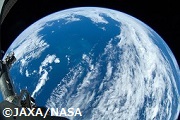| タイトル | Early Solar System Alkali Fractionation Events Recorded by K-Ca Isotopes in the Yamato-74442 LL-Chondritic Breccia |
| 本文(外部サイト) | http://hdl.handle.net/2060/20150001940 |
| 著者(英) | Yoneda, S.; Misawa, K.; Shih, C.-Y.; Okano, O.; Simon, J. I.; Tappa, M. J.; Nyquist, L. E.; Tatsunori, T. |
| 著者所属(英) | NASA Johnson Space Center |
| 発行日 | 2015-03-16 |
| 言語 | eng |
| 内容記述 | Radiogenic ingrowth of Ca-40 due to decay of K-40 occurred early in the solar system history causing the Ca-40 abundance to vary within different early-former reservoirs. Marshall and DePaolo ] demonstrated that the K-40/Ca-40 decay system could be a useful radiogenic tracer for studies of terrestrial rocks. Shih et al. [3,4] determined 40K/40Ca ages of lunar granitic rock fragments and discussed the chemical characteristics of their source materials. Recently, Yokoyama et al. [5] showed the application of the K-40/Ca-40 chronometer for high K/Ca materials in ordinary chondrites (OCs). High-precision calcium isotopic data are needed to constrain mixing processes among early solar system materials and the time of planetesimal formation. To better constrain the solar system calcium isotopic compositions among astromaterials, we have determined the calcium isotopic compositions of OCs and an angrite. We further estimated a source K/Ca ratio for alkali-rich fragments in a chondritic breccia using the estimated solar system initial Ca-40/Ca-44. |
| NASA分類 | Lunar and Planetary Science and Exploration |
| レポートNO | JSC-CN-32819 |
| 権利 | Copyright, Distribution as joint owner in the copyright |
|

